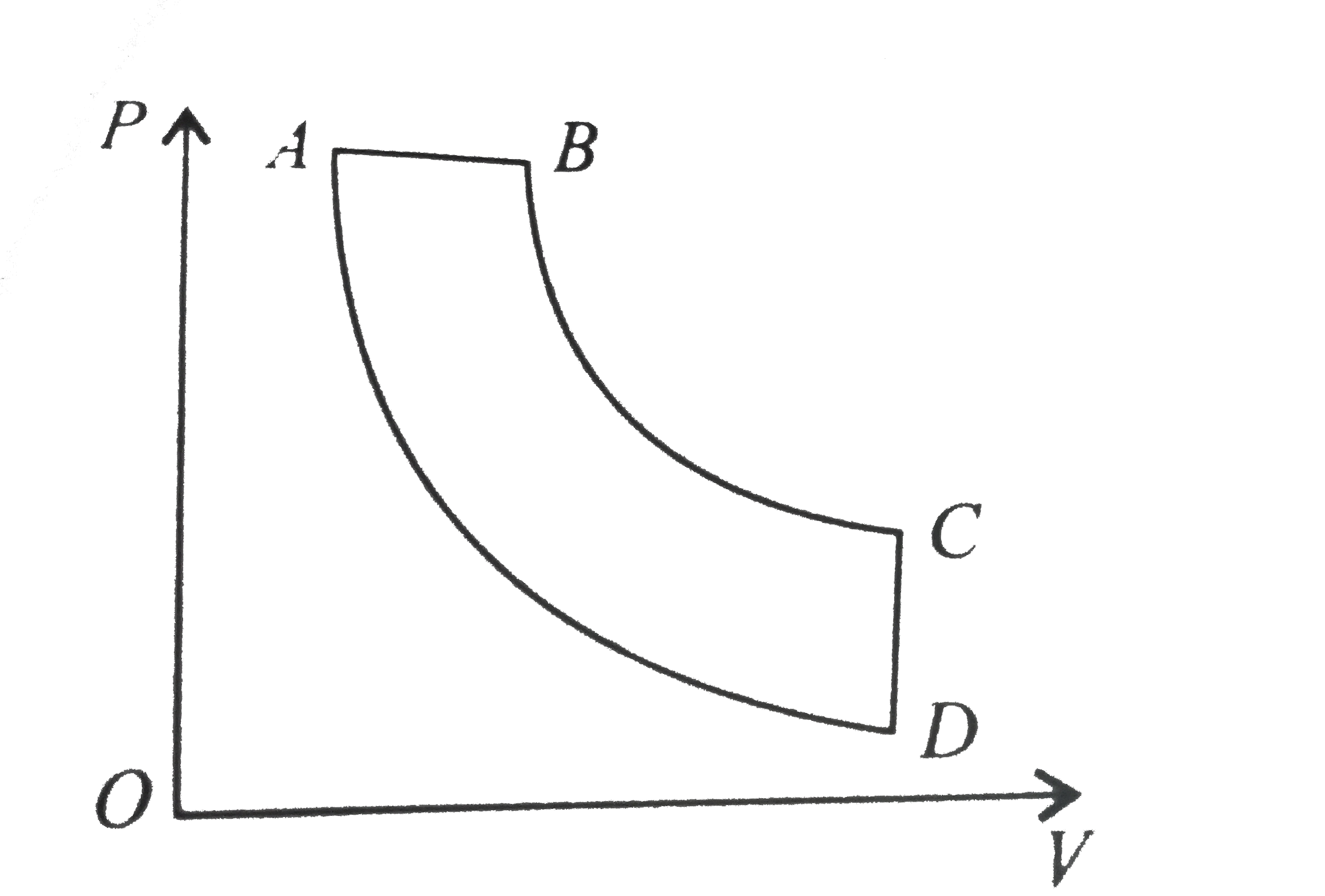Isoentropic process is
adiabatic and irreversible process
isothermal and reversible process
Adiabatic and reversible process
isothermal and reversible for which Q=0
The correct Answer is:C
Step-by-Step Solution:
1. Definition of Isoentropic Process:
An isoentropic process is defined as a thermodynamic process that occurs at constant entropy. This means that during the process, there is no change in the entropy of the system.
2. Characteristics of Isoentropic Process:
- Adiabatic: An isoentropic process is adiabatic, which means that there is no heat transfer into or out of the system. The system is thermally insulated.
- Reversible: The process is also reversible, meaning that it can be reversed without any net change in the system and surroundings. This implies that the process occurs without any friction or dissipative effects.
3. Work Transfer:
In an isoentropic process, the work done by or on the system is frictionless. This means that the work interactions do not involve any energy losses due to friction, making the process idealized.
4. Conclusion:
Since an isoentropic process is characterized by being both adiabatic and reversible, we can conclude that it is an idealized thermodynamic process where entropy remains constant.
Final Answer:
An isoentropic process is an idealized thermodynamic process that is both adiabatic and reversible, characterized by constant entropy.
---
An isoentropic process is defined as a thermodynamic process that occurs at constant entropy. This means that during the process, there is no change in the entropy of the system.
- Adiabatic: An isoentropic process is adiabatic, which means that there is no heat transfer into or out of the system. The system is thermally insulated.
- Reversible: The process is also reversible, meaning that it can be reversed without any net change in the system and surroundings. This implies that the process occurs without any friction or dissipative effects.
In an isoentropic process, the work done by or on the system is frictionless. This means that the work interactions do not involve any energy losses due to friction, making the process idealized.
Since an isoentropic process is characterized by being both adiabatic and reversible, we can conclude that it is an idealized thermodynamic process where entropy remains constant.
An isoentropic process is an idealized thermodynamic process that is both adiabatic and reversible, characterized by constant entropy.
Topper's Solved these Questions
- THERMODYNAMICSBOOK - RESONANCE ENGLISHCHAPTER - THERMODYNAMICSEXERCISE - exercise-2 Part:(II): Single and Double value integer type
11 Videos
- THERMODYNAMICSBOOK - RESONANCE ENGLISHCHAPTER - THERMODYNAMICSEXERCISE - exercise-2 Part:(III): One or more than one options correct
8 Videos
- THERMODYNAMICSBOOK - RESONANCE ENGLISHCHAPTER - THERMODYNAMICSEXERCISE - exercise-3 Part:(III) : Match the column
3 Videos
- TEST SERIESBOOK - RESONANCE ENGLISHCHAPTER - TEST SERIESEXERCISE - CHEMISTRY
50 Videos
Similar Questions
Match the column :-
Column - IColumn - IIAAdiabatic processPq=0BIsothermal processQΔH=0CIsoenthalpic processRΔT=0DIsoentropic processSΔS=0
View SolutionWhich of the following processes is an isoentropic process?
View SolutionOne mole of an ideal monoatomic gas at 27∘C is subjected to a reversible isoentropic compression until the temperature reached to 327∘C. If the initial pressure was 1.0atm, then find the value of ln P2
( Given :ln2=0.7)
View SolutionA spontaneous process is also called a ...... process.
View SolutionA spontaneous process is a process which is instaneous.
View SolutionA spontaneous process is an ...... process and occurs in ...... direction only.
View SolutionIn the pressure-volume diagram given below, the isochoric, isothermal, isobaric, and isoentropic parts, respectively, are:

View SolutionDow process.
View SolutionDow process.
View SolutionDow process.
View Solution
